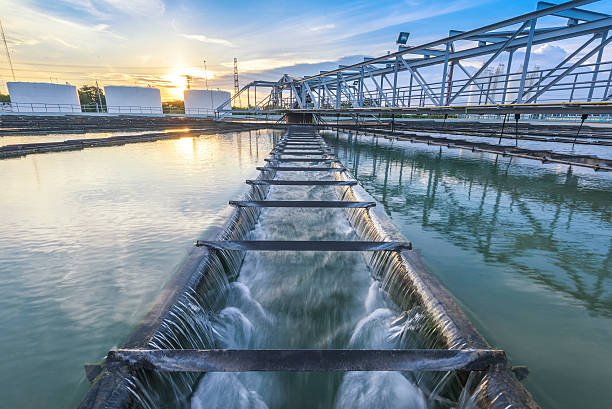Water treatment and management is a vital component of any nation’s infrastructure, especially in countries grappling with water scarcity, such as South Africa. This article delves into the various mechanisms and techniques employed by South African municipalities to ensure clean water provision for their residents.
Article Highlights
- The Role of Municipalities: Municipalities in South Africa bear the primary responsibility of ensuring clean water provision. They adopt a range of water treatment processes, supported by the Department of Water and Sanitation, to fulfil this vital role.
- Conventional Water Treatment: Most South African municipalities use conventional water treatment processes, involving stages such as coagulation and flocculation, sedimentation, filtration, and disinfection. These processes work in conjunction to remove dirt, bacteria, and other contaminants, ensuring the delivery of safe, potable water to households.
- Innovative Water Treatment Approaches: To combat the growing water scarcity problem, some municipalities are resorting to innovative water treatment techniques. These include membrane filtration, reverse osmosis for seawater desalination, and wastewater recycling. Despite their higher initial cost, these methods provide a viable solution to augment the water supply and address the challenges posed by climate change and population growth.
How do Municipalities Clean Water in South Africa?
Introduction to Water Management in South Africa
Water, as the fundamental element for human existence, is also the lifeblood of any nation’s development and progress. The Republic of South Africa, facing diverse geographical terrains and weather conditions, has established a comprehensive water management system to provide clean, potable water to its inhabitants. The responsibility of clean water provision primarily lies on the shoulders of municipalities, with the support of the national Department of Water and Sanitation and other involved bodies.
South Africa follows a multi-tier approach to manage its water resources, employing an array of techniques to ensure the delivery of clean, safe water. This article highlights the major processes and systems used by municipalities to clean water in South Africa.
Conventional Water Treatment in South Africa
The primary role of municipalities in South Africa is to ensure the provision of clean, potable water to their inhabitants. Most municipalities utilise conventional water treatment processes to achieve this objective. This process usually involves a series of stages such as coagulation and flocculation, sedimentation, filtration, and disinfection.
1. Coagulation and Flocculation: Coagulation involves adding a substance known as a coagulant to the water, which aids in clumping the dirt and other particles in the water together into larger particles known as ‘flocs’. Flocculation is a gentle stirring or mixing process that enhances the contact between the coagulant and water to form larger flocs for easy removal.
2. Sedimentation: Once the flocs are formed, the water flows into a sedimentation basin where the flocs settle at the bottom due to gravity. The settled flocs are known as ‘sludge’, which is periodically removed for further treatment or disposal.
3. Filtration: The water is then passed through layers of fine sand and sometimes crushed coal and gravel. This process removes the microscopic particles and bacteria that have not been previously removed.
4. Disinfection: The final stage in the conventional water treatment process is disinfection. This process kills any remaining viruses, bacteria, and parasites, making the water safe to drink. Commonly used disinfectants include chlorine, ozone, and ultraviolet light.
Innovative Approaches to Water Treatment
Due to the increasing pressure on water resources in South Africa because of climate change and population growth, several municipalities are embracing innovative techniques for water treatment and reuse.
1. Membrane Filtration: Some municipalities have adopted membrane filtration technology, which uses a thin material with tiny pores to filter out bacteria, viruses, and other contaminants from the water. The advantages of this method are that it does not require chemicals and can remove more contaminants than conventional filtration techniques.
2. Reverse Osmosis: In areas where water scarcity is severe, some municipalities have installed desalination plants that use reverse osmosis to convert seawater into fresh water. While the cost of desalination is high, technological advancements are helping to make this process more affordable.
3. Wastewater Recycling: Many municipalities are also looking at wastewater recycling as a way to augment their water supply. Wastewater recycling involves treating the water used in homes and businesses to a high standard so it can be reused for irrigation, industrial processes, or even drinking.
South African municipalities are implementing an array of techniques to ensure the delivery of clean, safe water. While conventional methods remain the foundation of water treatment, innovative approaches are increasingly being adopted to address the challenges posed by climate change and population growth. The continued efforts of these municipalities are critical in ensuring the sustainable provision of water for all residents of South Africa.

